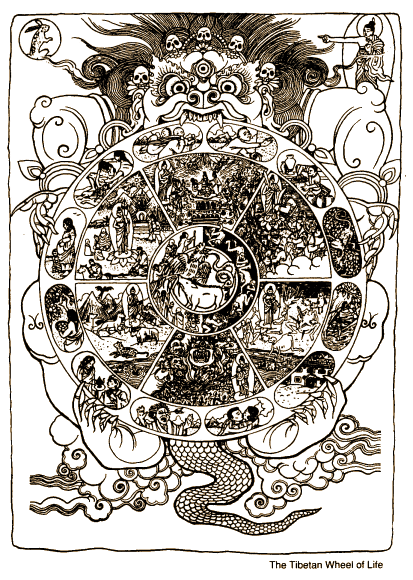THE Western liberal media had a laugh in August when China’s State Administration of Religious Affairs announced Order No. 5, a law covering “the management measures for the reincarnation of living Buddhas in Tibetan Buddhism.” This “important move to institutionalize management on reincarnation” basically prohibits Buddhist monks from returning from the dead without government permission: no one outside China can influence the reincarnation process; only monasteries in China can apply for permission.…Contrary to the conventional wisdom, the Chinese government is not antireligious. Its stated worry is social “harmony” — the political dimension of religion. In order to curb the excess of social disintegration caused by the capitalist explosion, officials now celebrate religions that sustain social stability, from Buddhism to Confucianism — the very ideologies that were the target of the Cultural Revolution. Last year, Ye Xiaowen, China’s top religious official, told Xinhua, the official Chinese news agency, that “religion is one of the important forces from which China draws strength,” and he singled out Buddhism for its “unique role in promoting a harmonious society.”
What bothers Chinese authorities are sects like Falun Gong that insist on independence from state control. In the same vein, the problem with Tibetan Buddhism resides in an obvious fact that many Western enthusiasts conveniently forget: the traditional political structure of Tibet is theocracy, with the Dalai Lama at the center. He unites religious and secular power — so when we are talking about the reincarnation of the Dalai Lama, we are taking about choosing a head of state. It is strange to hear self-described democracy advocates who denounce Chinese persecution of followers of the Dalai Lama — a non-democratically elected leader if there ever was one.
On my visit to China, I loved the Chinese approach to religion. On the walls of their homes, there was a vertical red banner with five characters: God, the Land, King, Parents, Teacher. Religion didn’t have anything to do with that heirarchy of loyalties. Buddhism, Taoism, Confuciunism are for all to take whatever part works best. Religion is about the personal conduct and inner experience of the person. God is something else – a vague given. That also sounds like a great idea to me.
In the same vein, the problem with Tibetan Buddhism resides in an obvious fact that many Western enthusiasts conveniently forget: the traditional political structure of Tibet is theocracy, with the Dalai Lama at the center. He unites religious and secular power — so when we are talking about the reincarnation of the Dalai Lama, we are taking about choosing a head of state. It is strange to hear self-described democracy advocates who denounce Chinese persecution of followers of the Dalai Lama — a non-democratically elected leader if there ever was one.
I’m big on Democracy. We westerners need it. In many ways, it’s our only right choice. But that doesn’t mean I can’t respect the Chinese separating God from Religion, and respecting the Tibetan wisdom of asking everyone to look within. "Theocracy" in Tibet means something very different from what it means to us, or the Moslems. It’s not about laws. It’s about the focus on one’s personal development. The author of this op-ed, Slavoj Zizek, is a personal favorite of mine. But in this piece, he makes an asumption that all religions are like the ones that arose in the Middle East – Judism, Christianity, Islam. That’s not right. And he assumes that supporters of democracy would see it as applicable to all people. Also not right…..

Sorry, the comment form is closed at this time.